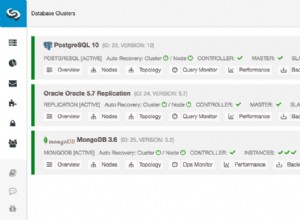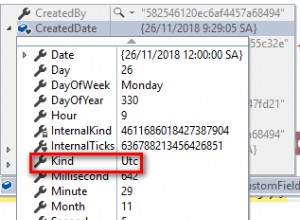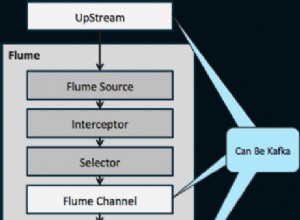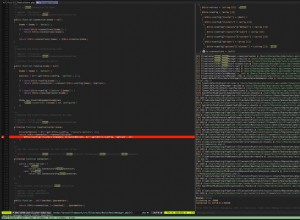Dovresti comunque usare async ma hai bisogno di async.waterfall per quello. Ecco cosa devi considerare:
Un metodo principale per chiamare il tuo async funzione:
var getInformation = function(){
async.waterfall([
//Array of your functions in order, we will be back here later
], function (err) {
if(err){
console.log(err);
}else{
console.log('Everything OK!');
}
);
}
Quindi devi che le tue funzioni siano async amichevole, ciò significa che dovresti usare i callback e trasferire i tuoi dati da una funzione all'altra. Qualcosa del genere:
function findUser(callback){
//Do something
if('Everything OK'){
callback(err, yourData); //err should be null if everything is OK and yourData should be the data that you wanna use in your next function. e.g. schoolId
}else{
callback(err); //Something was wrong, "err" should have something different to null
}
}
function findSchool(callback, schoolId){ //Note that we receive the parameter schoolId here but not in the first function
//Do something
if('Everything OK'){
callback(err, yourData); //err should be null if everything is OK and yourData should be the data that you wanna use in your next function. e.g. schoolName
}else{
callback(err); //Something was wrong, "err" should have something different to null
}
}
function findStudents(callback, schoolName){
//Do something
if('Everything OK'){
callback(err); //err should be null if everything is OK if this is the last function maybe we don't need to send back more data from here
}else{
callback(err); //Something was wrong, "err" should have something different to null
}
}
Quindi dovresti chiamare le tue funzioni nel tuo metodo principale:
var getInformation = function(){
async.waterfall([
findUser,
findSchool,
findStudents
//Note that there is no need to tell the functions the parameters they are sending or receiving here
], function (err) {
if(err){
console.log(err);
}else{
console.log('Everything OK!');
}
);
}
E il gioco è fatto, hai 3 funzioni che dovrebbero essere eseguite una dopo l'altra e non è necessario alcun callback hell.




